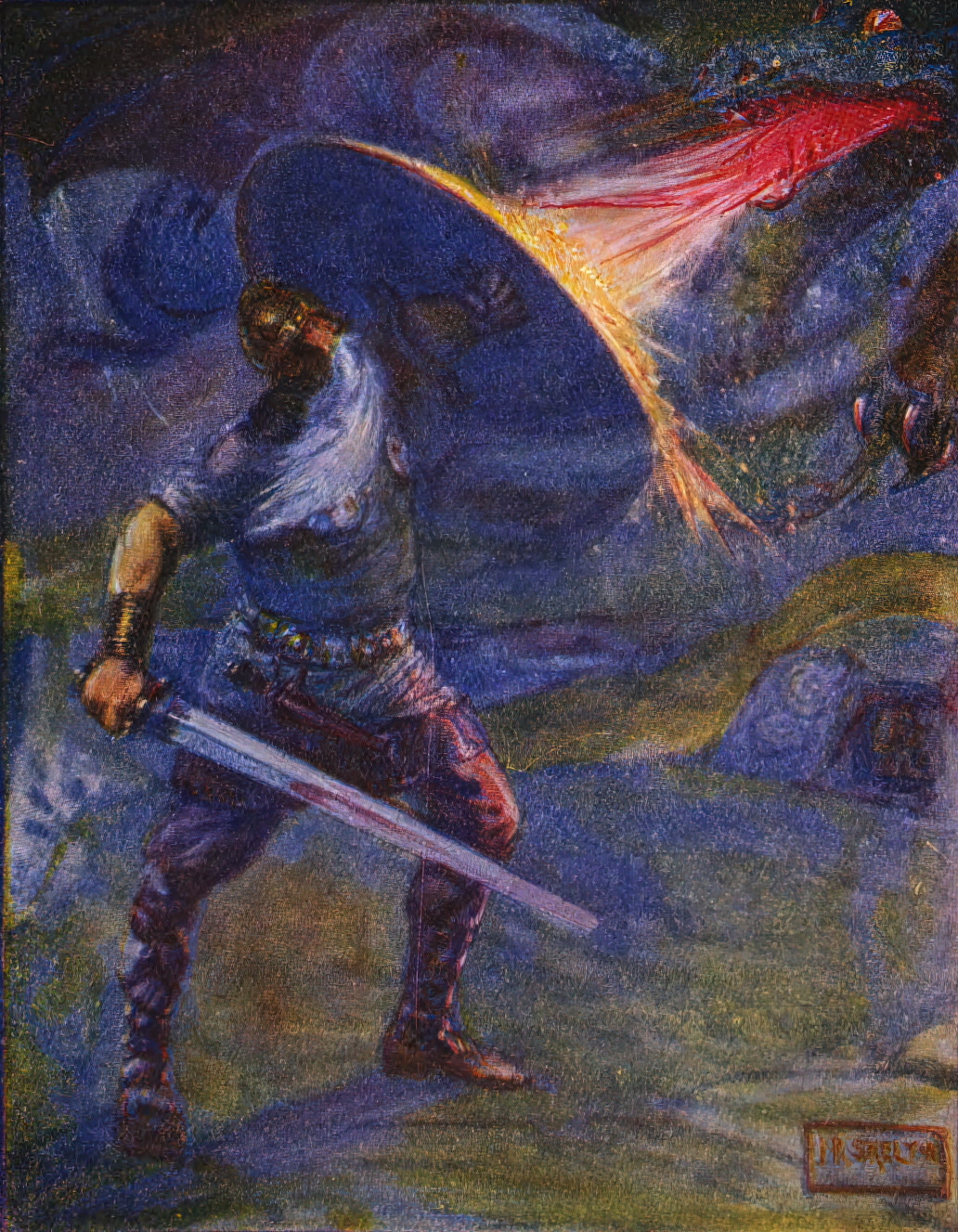Nægling on:
[Wikipedia]
[Google]
[Amazon]
 Næġling () is the name of one of the swords used by Beowulf in the Anglo-Saxon epic poem of '' Beowulf''. The name derives from "næġl", or "nail", and may correspond to Nagelring, a sword from the '' Vilkina saga''. It is possibly the sword of
Næġling () is the name of one of the swords used by Beowulf in the Anglo-Saxon epic poem of '' Beowulf''. The name derives from "næġl", or "nail", and may correspond to Nagelring, a sword from the '' Vilkina saga''. It is possibly the sword of
 Næġling () is the name of one of the swords used by Beowulf in the Anglo-Saxon epic poem of '' Beowulf''. The name derives from "næġl", or "nail", and may correspond to Nagelring, a sword from the '' Vilkina saga''. It is possibly the sword of
Næġling () is the name of one of the swords used by Beowulf in the Anglo-Saxon epic poem of '' Beowulf''. The name derives from "næġl", or "nail", and may correspond to Nagelring, a sword from the '' Vilkina saga''. It is possibly the sword of Hrethel Hrethel ( ang, Hrēðel; gem-x-proto, Hrōþilaz, italic=no) is a king of the Geats''.
Name
Hrethel's name appears with both the root vowel and and with both the consonant (i.e. the phoneme , pronounced in Old English) and (which would ordi ...
, which Hygelac
Hygelac ( ang, Hygelāc; non, Hugleikr; gem-x-proto, Hugilaikaz; la, Ch(l)ochilaicus or ''Hugilaicus''; died 521) was a king of the Geats according to the poem ''Beowulf''. It is Hygelac's presence in the poem which has allowed scholars to ...
gave to Beowulf (ll. 2190-94). Næġling is referenced many times as a fine weapon—it is "sharp", "gleaming", "bright", "mighty", "strong", and has a venerable history as an "excellent ancient sword", "ancient heirloom", and "old and grey-coloured". However, the sword does not survive Beowulf's final encounter with the dragon, snapping in two—not because of the dragon's strength, but because of the hero's strength:
Beowulf's hand is "too strong" for the weapon. Stopford Brooke claims this is "absurd, for Beowulf had fought with it all his life", and that "some later editor" inserted the passage, conflating Beowulf with a story told of Offa of Mercia. While Taylor Culbert argues the poet blames the weapon for it, effectively "aggrandiz ngBeowulf in the eyes of the reader", Judy Anne White, in a Jungian reading of the poem, proposes that "Beowulf's inability to use a sword is a part of his destiny, a question of fate, and therefore beyond his control." The idea of a sword failing for the hero at a crucial time has parallels in other Germanic works such as in the '' Volsunga saga'' and ''Næġling forbærst, ġesƿác æt sæcce sƿeord Bíoƿulfes, gomol ond grǽgmǽl. Him þæt ġifeðe ne ƿæs þæt him írenna eċġe mihton helpan æt hilde; ƿæs sío hond tó strong
Gesta Danorum
''Gesta Danorum'' ("Deeds of the Danes") is a patriotic work of Danish history, by the 12th-century author Saxo Grammaticus ("Saxo the Literate", literally "the Grammarian"). It is the most ambitious literary undertaking of medieval Denmark an ...
''. However this is especially true in the '' Gunnlaugs saga'', where the author goes at pains to show that it was the hero and not the foe who broke the sword. Furthermore, in Germanic tradition, exceptional swords may often use words such as old, ancient, or ancestral. However this may not always fit the story of the hero, such as when the sword is forged for him. In Næġling's case, the sword has more of a literary characteristic than a specific ancestral lineage, as is evident from its name. Nevertheless, the sword is described as being ''gomol ond grægmæl'' (old and gray).Portnoy, Phyllis (February 1, 2006). ''The Remnant: Essays on a Theme in Old English Verse''. Runetree. p. 25. .
See also
*Hrunting
Hrunting was a sword given to Beowulf by Unferth in the ancient Old English epic poem ''Beowulf''. Beowulf used it in battle against Grendel's mother.
Beowulf is described receiving the sword in lines 1455-1458:
And another item lent by Unfer ...
, another sword used by Beowulf
Notes
{{DEFAULTSORT:Naegling Mythological swords Beowulf ang:Næȝling